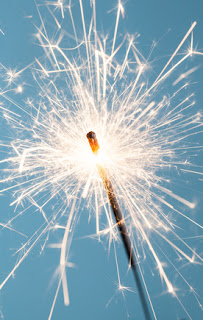-
Never allow children to play with or ignite fireworks, including sparklers.
-
Don’t purchase fireworks packaged in brown paper, which indicates they may have been intended for professional displays only.
-
Keep all body parts, especially the face, out of the direction of the fireworks when lighting a fuse. Then back up immediately to a safe distance one the fuse is lit.
-
Fill a bucket of water, or locate a garden hose, and place it nearby in case of emergency.
-
Give up on malfunctioning fireworks that don’t ignite after several tries. Soak them in water and toss them.
-
Avoid pointing or throwing fireworks at another person. And never aim them directly at a house, building, car, or trees.
-
Always light fireworks one at a time.
-
Once fireworks have burned out, douse them with plenty of water so they a good and soggy before being thrown out.
Fourth of July and Fireworks Safety
The Fourth of July is our nation’s most celebrated holiday. Unfortunately, it is also the most dangerous.
According to the Consumer Product Safety Commission (CPSC), more than 10,000 people were injured on the Fourth of July in 2014 due to fireworks. The most common having been burns to the skin and eye injuries. Tragically, children under the age of 15 years old experienced the highest rate of injury.
Sparklers, which tend to be pretty tame compared to other fireworks and are popular with kids, are the greatest cause. Their festive spark burns at a temperature of nearly 2,000 degrees.
To keep your family safe the Fourth of July, the CPSC offers the following tips:
Also make sure that fireworks are legal in your city or county before ever setting them off on your own.
Enjoy this most patriotic holiday of ours, but please remember, safety first.
(Courtesy of the CPSC-Consumer Product Safety Commission)
Keep up with Texas Orthopedics news by following us on Facebook and Twitter (@TexasOrthopedic).



